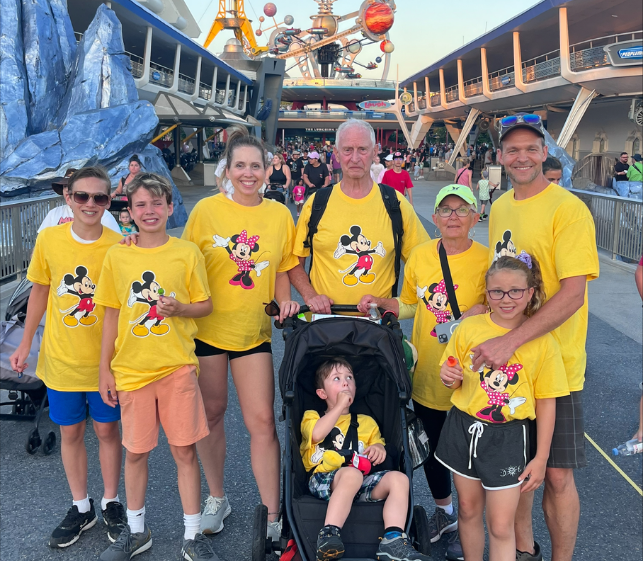
When I was 18, I went to my family doctor for my annual physical. As usual, they checked my eyes and ears, but when they listened to my heart, they heard a murmur.
I was referred to Dr. Derek Boughner, a cardiologist at London Health Sciences Centre (LHSC). After some testing, we discovered I had a leaky aortic valve. He told me it was stable for now, but I would need surgery to repair it in a couple of years. Being a high-level athlete, I’ve always felt completely fine.
For years, every scan led to the same assessment: “mild to moderate.” I continued to eat healthy, exercise and keep a positive mindset. In my chiropractic clinic, I regularly tell patients, “you’re the only one responsible for your health. We’re lucky to have great care when we need it, but we also need to do our part.” Looking back, I think my lifestyle helped delay the need for surgery.
Three decades passed. I got married. I became a dad to three wonderful kids.
Then, at one of my annual appointments, they noticed my heart wall had started to grow. I still had no symptoms—no pain, no fatigue. At this point, they said it was time to start thinking about intervening before this leads to heart failure.
In 2018, at 46, I was scheduled for my first open-heart surgery: a Ross procedure, performed by Dr. Michael Chu at LHSC. They would use one of my healthy valves to replace the faulty one and gave me a donor valve to replace the one that was moved.
The night before surgery, I went out for ice cream with my brother, my wife and our kids. I trusted my medical team completely. Yet, it was hard, because I couldn’t shake the thought: What if this is their last memory of me?
The recovery took time. I was well cared for by my parents, while my wife looked after our kids and our patients. Three months later, I was back at work.
Not long after, I started to experience shortness of breath. Just walking up the stairs left me winded. Tests showed the valve they’d moved had started to narrow. I needed another procedure. This time, they could go in through my groin, which happened in Toronto.
After this, my health was good for years. My wife and I welcomed our youngest child—our fourth—spent weekends enjoying Port Franks Beach and continued to travel.
Then, in 2024, my routine scan showed my valve had become leaky again. Dr. Chu recommended replacing it with a cow valve and surgery was scheduled for November 27.
This one was a lot more emotionally challenging than the other two procedures. Maybe it’s because I knew more this time. Maybe it’s because I thought about my wife being superwoman, caring for me, our patients and our extremely active kids. Or maybe it’s because I finally allowed myself to feel.
I revisited our will. I wrote 20 letters to my loved ones. I said what I needed to say. Just in case. I’m not afraid of dying. I know that will happen one day and I’ve had an amazing life. But the thought of not being there for my kids—that’s what digs. Not being there to cheer at their games, to answer their questions, to hug them goodnight.
The surgery went well. I’m still recovering, but my strength is coming back. My journey continues—they’re still monitoring my heart—but I’m appreciating every second.
The care I’ve received at LHSC has been incredible. The nurses are so compassionate (Atticus, you rock). I’ve felt and observed this while they looked after me and others. Support workers were attentive to every need. From the knowledge and skill of my cardiologists to the administrative staff that keep it all connected, I was very well cared for. That’s the approach I try to take in our practice: it’s not just about fixing the medical problem—it’s about helping people return to their lives.
I often write down the things I’m grateful for when I awake. Some days it’s the sun, others the rain. But every day, it’s my health and my family.
